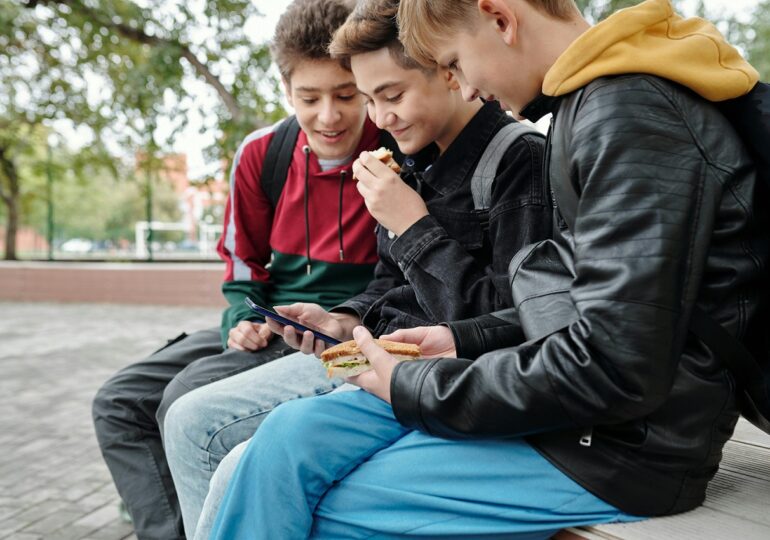Online platforms will send notifications to the accounts of young people under 16 in Australia in the coming days, informing them to download their photos and important data and to freeze their profiles. Otherwise, their accounts will be deleted.
Many governments are concerned about the impact of social media on minors and are seeking effective solutions to protect them. So far, they have not found the ideal formula. However, Australia is taking an important step with a law to prohibit minors from accessing social networks. And what is happening Down Under could serve as a starting point for other countries.
Starting on December 10, Australia will enforce the world's first ban on minors using social networks. TikTok, Snapchat, Facebook, Instagram, and Threads, the social networks of Meta, are prepared to deactivate accounts registered by users under 16, according to five people familiar with these plans who spoke to Reuters.
Platforms already had the solution
The 20 million users in Australia who will remain on social networks - that is four-fifths of the population - should be minimally affected by this change, sources said.
Social media companies have complained that they will lose users because mandatory age checks would subject them to endless logins, be invasive or inaccurate, and be easy to circumvent. But they had the solution: companies will rely on the software they already use to determine age based on interaction, tracking, for example, users' "likes" and friends to deliver targeted advertising messages.
Companies will generally resort to age verification apps only when users claim they have been incorrectly blocked, sources said.
However, this system is not a perfect solution.
There have been errors too
Anyone can challenge the login ban through age verification apps, which are being implemented on a large scale for the first time and which tests have shown to work, but sometimes with unacceptable error levels.
For example, 16-17-year-olds have been blocked, while others aged 15 have been granted access. And the fine for granting access to users under 16 is 32 million Australian dollars (17.9 million euros).
- Screen addiction, an increasingly serious problem. How much time do teenagers spend online per week?
For those directed to age verification apps, disruptions will continue to be minimal, said Julie Dawson, policy director at Yoti, a platform that provides age verification services for Facebook, Instagram, and TikTok.
"There will be a maximum of two to three weeks for people to get used to something they do daily, and then it will be old news," she said.
TikTok prepares the button for reporting minors
Governments are trying to take measures to protect children online after Meta documents leaked in 2021 showed the harm social networks cause to teenagers. In 2024, the bestseller "The Anxious Generation" and a News Corp campaign contributed to boosting political action.
The new law has faced opposition from supporters of freedom of speech and children's rights, as well as from social media companies and content creators.
Social media platform operators have until December to implement means of blocking minors without the need for parental intervention.
During parliamentary hearings in October, all companies, except Google, stated their intention to comply with legal provisions and contact young users.
TikTok, which stated it has 200,000 Australian users aged 13-15, told Parliament it is designing a button for reporting users suspected of being minors.
The age with the most issues
In principle, the user will be directed to third-party age verification apps only if they believe the platform's embedded software has incorrectly estimated their age, sources said.
In this case, the apps guess the age based on a selfie. If the user notices that their real age has still not been determined, they can upload an identity document.
People aged 16-17 are the most prone to errors, as the accuracy of age estimation based on a photo decreases in this range. Additionally, these users are less likely to possess documents like a driver's license, so they may find themselves locked out of networks.
Around 600,000 Australians are aged 16-17, according to government data.
"Many of the technological methods for age verification will fail in this narrow margin," said Daswin De Silva, a computer science professor at La Trobe University.
For those unfairly denied access, "there will likely be a service disruption for a few days or weeks, perhaps, until platforms realize this," he added.
A model for the rest of the world
The implementation of the new law will likely influence global efforts to limit young people's exposure to technology-related mental and physical dangers, such as bullying and obesity.
The UK and France imposed age verifications for pornographic sites in June and July, and Denmark announced this month that it will ban individuals under 15 from social networks.
However, initiatives in France and Florida have been complicated by complaints about the practical implementation of bans and encroachment on freedom of expression.
The law requires platforms to take "reasonable measures" to block minors' access. The eSafety Commissioner stated that measures should include detecting visits through virtual private networks (VPNs), which mask a device's location.
Beyond VPNs and circumvention, social platforms must also consider competitors who are not yet subject to the ban, said Hassan Asghar, a senior lecturer in computer science at Macquarie University. "I'm not a fortune teller, but other platforms could take over," he said.
T.D.

